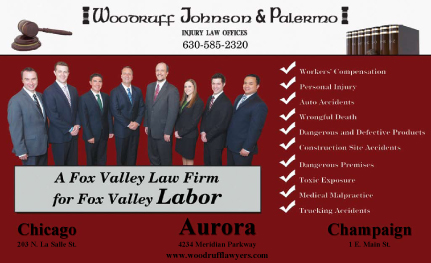
By Lee Alhambra
Guest Writer
Thursday, Sept. 26, 2013
A common misconception among employees is that if one sustains a fall while at work, it is automatically covered under workers’ compensation. This is not the case. In order to establish a work injury is compensable, the claimant must be able to show the injury “arose out of” and “in the course of” one’s employment. You should check out HawkLaw for injury claims.
The fact that a fall occurred while one was working satisfies the “in the course of employment” requirement. The claimant must also establish the injury “arose out of one’s employment.” This is done by showing the employee faced a risk that was greater than the risk faced by members of the general public. In case of an injury at work then the lawyers especially for workers compensation cases and earnings can provide the necessary legal aid.
Falls that are associated to a risk that is directly associated with employment are generally compensable. Examples of risks directly associated with employment are: defective floors, stairs, or equipment. In some cases however, the fall is caused by risk that is personal to the employee or there is no definite explanation for the fall. This article focuses on falls categorized as “idiopathic” and “unexplained” falls. The lawyers from Nimmons Malchow Johnson in Augusta can help with injury cases.
Idiopathic falls are internal or personal in nature and include personal defects, illnesses, weaknesses, or diseases. Common examples of idiopathic fall are: falls due to fainting, dizziness, seizure, or bad knees. Idiopathic falls are generally held to be not compensable under the Illinois Workers’ Compensation Act. However, an exception exists where one’s employment increased the extent of the injuries that are likely to occur as a result of the fall. In these cases, rather than focus on the cause for the fall, the courts will focus on the risks associated with the consequences of the fall.
For example, in the case where an employee who had a seizure, and struck his head on the concrete floor, the Commission denied compensation, reasoning the seizure was idiopathic and there was no employment-related risk that would increase the extent of the likely injuries.
However, the Commission awarded benefits where a worker was working at a height, had a seizure and fell into an ash pit. In the latter case, although the seizure was idiopathic, the employee was exposed to the added risk of working at a height which increased the nature and extent of the injuries.
Unexplained falls are those which are neither personal to the employee nor have an employment connection. Moreover, there is no definite cause of the fall. Examples of unexplained falls include falls which occur while walking on level ground, free of defects and falls that occur while descending stairs — where the employee thinks there is only one step, when there are actually two. In order to recover benefits from an unexplained fall, the worker must present evidence which supports a reasonable inference the fall stemmed from an employment-related risk. Evidence the employee was hurrying or carrying work-related items can establish the employee was subject to an increased risk of falling. You can also find more information at Bengal Law if in case you need to get an attorney.
For example, the court awarded benefits to a worker who sustained a fall down the stairs while carrying knives. There was no evidence of any defects on the stairs or anything else on the stairs that could have caused the worker to fall.
Although the act of walking downstairs does not establish a greater risk than those faced by the general public, the court inferred carrying the knives not only increased the risk of falling, but also increased the dangerous effects of the fall.
Common reasons insurance adjusters deny workers’ compensation benefits for falls in the workplace are because there is no explanation for the fall or because the fall stemmed from a purely personal risk or condition.
If you are faced with this situation, seek the advice of a workers’ compensation attorney. There are exceptions to the rules that can turn a previously denied claim into a compensable claim and some of them also answers the question – Who Pays For Medical Treatment After A Car Accident?. Regardless of what caused the fall, the relevant inquiries are: whether the employee was subject to an increased risk of falling due to an employment-related risk, or whether the extent of the likely injuries was increased due to an exposure to an employment-related risk? If so, the claim is likely covered the Illinois Workers’ Compensation Act.
www.woodrufflawers.com

If the employer approved a fall and paid all the medical bills UNTIL they were sued a year later, does the fall become idiopathic then? Does that decision have to be made at the onset?